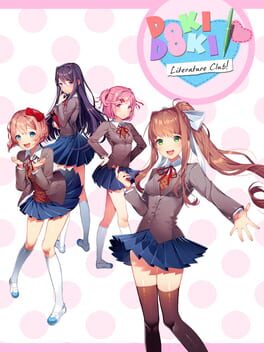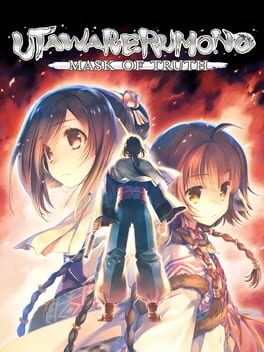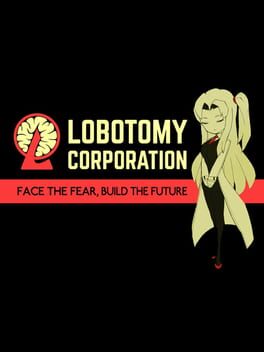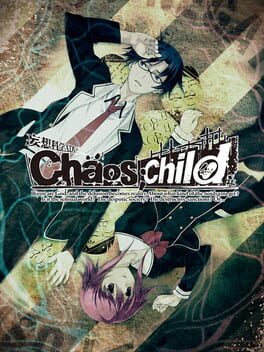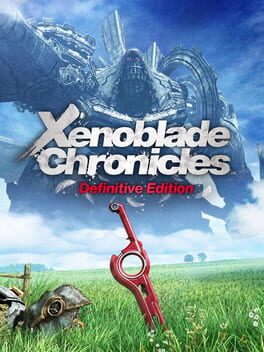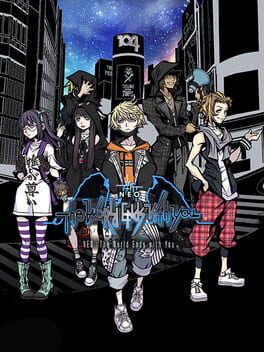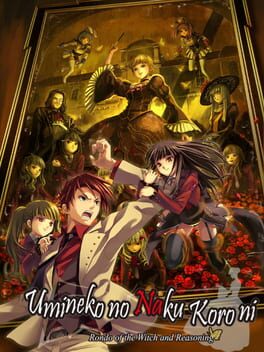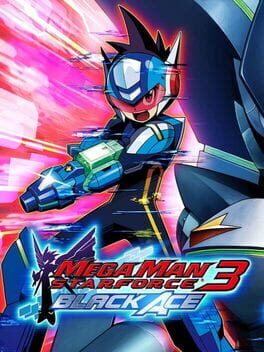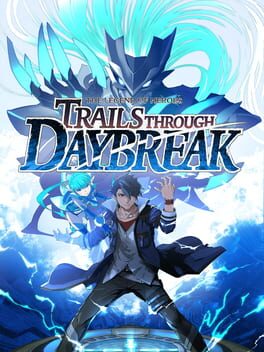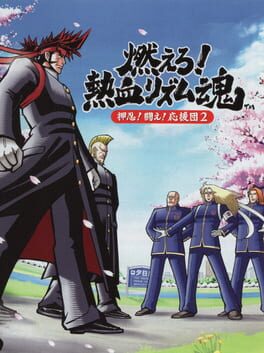CapitalD
7 reviews liked by CapitalD
sitting at the top of a hill littered with 2010s western independent charmers with hamfisted attempts at satire, post-modernism, genre critique, societal reflection and subversive storytelling is this crown jewel; the crème de la crème example of the self-serving haughty pretentiousness of an entire generation of would-be internet geniuses scrolling through tv tropes page by page in hopes to form contrarian opinions on popular media based on the talking points and consensuses of other people. if you're of a certain age demographic, you know this person - the one who parrots the opinions of your nostalgic critics and mr. enters as if the information they siphoned by lazing about youtube in search of a personality might be enough to make someone go, 'geez, this guy KNOWS his stuff' without having to go through the effort of formulating their own thoughts, or even worse, having to experience the media they're responding to the response of firsthand.
doki doki literature club stands as an indulgence of saturated moe-era anime tropes under the guise of a critique of the wikipedia plot summaries of KEY, ryukishi07 and type-moon games without having the slightest bit of humility or self-awareness in its execution. it, its creator, and its audience herald itself as some massive deconstruction of the visual novel form, when in actuality it's about in line with the actuality of what it's criticizing as yiik is with jrpgs. there is no metatextual subversion to be had. doki doki is a children's birthday magician - a couple of flashy tricks capable of fooling someone who doesn't know how ren'py works, but beyond its cheap parlor tricks which might give the astute horror mastery of, say, happy tree friends a run for its money, the title lacks substance, it lacks any form of personality, and it lacks the competence to warrant these mistakes in the face of a greater picture or experience.
i won't even dip into the implications the creator has made about how this game is apparently a very real and serious approach to topics such as self-harm and abuse - as a survivor of both i find these claims bordering on insanity - but i will offer the benefit of a doubt and suggest that maybe this is a product of genuine, ineffable incompetence and misjudgment... rather than one of deep-rooted pretention and narcissism. you could get the exact same experience intersplicing five nights at freddy's jumpscare reaction videos, one of the upteenth saw sequels, and nyan neko sugar girls as one would have playing doki doki literature club, but at the least, the former is shocking, entertaining and funny when it intends to be. do your wallet a favor and pass on this one - and yes, i know it's free.
doki doki literature club stands as an indulgence of saturated moe-era anime tropes under the guise of a critique of the wikipedia plot summaries of KEY, ryukishi07 and type-moon games without having the slightest bit of humility or self-awareness in its execution. it, its creator, and its audience herald itself as some massive deconstruction of the visual novel form, when in actuality it's about in line with the actuality of what it's criticizing as yiik is with jrpgs. there is no metatextual subversion to be had. doki doki is a children's birthday magician - a couple of flashy tricks capable of fooling someone who doesn't know how ren'py works, but beyond its cheap parlor tricks which might give the astute horror mastery of, say, happy tree friends a run for its money, the title lacks substance, it lacks any form of personality, and it lacks the competence to warrant these mistakes in the face of a greater picture or experience.
i won't even dip into the implications the creator has made about how this game is apparently a very real and serious approach to topics such as self-harm and abuse - as a survivor of both i find these claims bordering on insanity - but i will offer the benefit of a doubt and suggest that maybe this is a product of genuine, ineffable incompetence and misjudgment... rather than one of deep-rooted pretention and narcissism. you could get the exact same experience intersplicing five nights at freddy's jumpscare reaction videos, one of the upteenth saw sequels, and nyan neko sugar girls as one would have playing doki doki literature club, but at the least, the former is shocking, entertaining and funny when it intends to be. do your wallet a favor and pass on this one - and yes, i know it's free.
The Mask games are easily my favorite story ever. While Mask of Deception was mostly slice of life, it really gave me a chance to get invested and understand the main cast. They’re all either funny, good, or both. And even among that cast there were a few that stood out among the rest. It was also the coziest reading experience I’ve ever had. The major plotline starts to pick up in the second half, but it never gets so serious that you lose heart. You’ll even get to see some familiar faces again. The world building goes crazy both for the world it is now and the world prior to it. But the ending to it is what swept me off my feet and put its hooks into me for Mask of Truth.
Mask of Truth on the other hand is the most emotionally packed story I’ve read. It hasn’t ditched its SoL heart entirely and frankly, it also has some of the best SoL I’ve ever read. What it has done is taken that cast that I loved from Deception and put them through the crucible. Not only does a civil war rage on, they’ve been dealt a crushing hand from Deception’s end. Everyone’s story either comes out just as good or much better than it was in the last game. The four people that ended up being my goats were Haku, Kuon, Nekone, and Anju with Haku being by far the best character in the games. Watching him go from that lazy, helpless, but caring bastard lost in this new land to a legend to be sung about was the best character journey I’ve ever been on. That laidback slow life he craved, he threw it all away to carry out the job left to him. The other 3 people I listed have some crazy struggles of their own with Kuon probably being the most interesting. The most emotional damage I’ve ever experienced from one character though goes to Nekone and her own relationship with Haku. It’s not even just her either. Everyone in her family has taken my kneecaps. All of the emotional catharsis in this game is fantastic and there’s just so much of it. All their tragedies, struggles, and triumphs have me broken by the end of it.
If there’s any real critique I can give the story is that it stumbles a bit near the end. Just a messy and rushed act as we approach the finish line. I almost lost faith that this would be a fumbled end. But the very ending portions of the game are done so well and everything preceding that act was so good I can let that go.
The music is competent with two real nice exceptions. There are 2 inserts in the game I really enjoy and one in particular that is the song I hear when I think about these games.
While I have basically no complaints about the story, I think the gameplay is very mediocre. It’s far too simple for me. The BP system is a pretty interesting idea for how to customize but it ended up just being like pumping attack and speed when I could afford it. There’s basically no reason to use tanks in this game. The passives you can equip also aren’t particularly interesting. It wasn’t bad, just not really the reason I played the game. One map was offensive though but the final map more than made up for it. I didn’t do the post game arenas at all though since the gameplay wasn’t for me.
Despite those problems, I’d still give this a 10/10. The story was just that strong. If you thought Uta 1 was decent, these should be right up your alley. If you didn’t play Uta 1, just expect a solid experience from Uta 1, but these 2 games are why I’m so thoroughly in love with the series.
Mask of Truth on the other hand is the most emotionally packed story I’ve read. It hasn’t ditched its SoL heart entirely and frankly, it also has some of the best SoL I’ve ever read. What it has done is taken that cast that I loved from Deception and put them through the crucible. Not only does a civil war rage on, they’ve been dealt a crushing hand from Deception’s end. Everyone’s story either comes out just as good or much better than it was in the last game. The four people that ended up being my goats were Haku, Kuon, Nekone, and Anju with Haku being by far the best character in the games. Watching him go from that lazy, helpless, but caring bastard lost in this new land to a legend to be sung about was the best character journey I’ve ever been on. That laidback slow life he craved, he threw it all away to carry out the job left to him. The other 3 people I listed have some crazy struggles of their own with Kuon probably being the most interesting. The most emotional damage I’ve ever experienced from one character though goes to Nekone and her own relationship with Haku. It’s not even just her either. Everyone in her family has taken my kneecaps. All of the emotional catharsis in this game is fantastic and there’s just so much of it. All their tragedies, struggles, and triumphs have me broken by the end of it.
If there’s any real critique I can give the story is that it stumbles a bit near the end. Just a messy and rushed act as we approach the finish line. I almost lost faith that this would be a fumbled end. But the very ending portions of the game are done so well and everything preceding that act was so good I can let that go.
The music is competent with two real nice exceptions. There are 2 inserts in the game I really enjoy and one in particular that is the song I hear when I think about these games.
While I have basically no complaints about the story, I think the gameplay is very mediocre. It’s far too simple for me. The BP system is a pretty interesting idea for how to customize but it ended up just being like pumping attack and speed when I could afford it. There’s basically no reason to use tanks in this game. The passives you can equip also aren’t particularly interesting. It wasn’t bad, just not really the reason I played the game. One map was offensive though but the final map more than made up for it. I didn’t do the post game arenas at all though since the gameplay wasn’t for me.
Despite those problems, I’d still give this a 10/10. The story was just that strong. If you thought Uta 1 was decent, these should be right up your alley. If you didn’t play Uta 1, just expect a solid experience from Uta 1, but these 2 games are why I’m so thoroughly in love with the series.
Lobotomy Corporation
2018
Chaos;Child
2014
Chaos;Child is already five years old and yet its social commentary is still as relevant and real as ever. Cleverly subverting the trend of teenagers solving with their youthful confidence conflicts greater far than them (de facto rendering steins;gate, from the same series, far more stupid than it already was), the story of chaos;child revolves around a chain of horrifying murders and the shocking truths that supposedly hide beneath the surface of a modern day media sensation.
Yet, that is indeed just the surface. Chaos;Child ventures into many different territories but at the core it is a work on the excessive power of mass media, internet noise, information wars and the terrifying coldness and the feeling of lack of purpose in modern times. While maintaining a coherent flow, sometimes slowing its pacing by giving the readers many moments of characters interactions, insight and respite to breath in and assimilate the many events transpiring, the plot always moves forward, asking relevant questions about the contemporary world and letting its characters answer them as they see fit. Are those the right answers? The wrong ones? It is hard to say. Living through difficult times is such an idiosyncratic experience that it is tempting to judge and impose our external views upon them, but even though we can express judgment is it really more important to understand and explain than to just simply understand?
Chaos;Child looks upon its characters, their struggles, their decisions, their successes and failures and, like an indifferent, omniscient eye, witnesses the worst inhumanities and never relents. When something bad happens there ain’t no silver lining or positive angle; characters might suffer and then have to deal with the consequences, even accepting their own mistakes, recognize their own flaws and act upon them, trying to better themselves or keep on running away. The underlying heroism in chaos;child does not equates to saving the world, sometimes it is just enough to accept our own limitations and do the best we can to make things slightly less worse for those we care about. As said before, there are no easy answers about what can be done to solve every problem; a tragedy is the misfortune brought upon oneself as a result of one’s own action. Oedipus was a tragic character because he killed his own father and married his mother as a result of his beliefs; Milton’s Satan was a tragic character because he decided to rebel against God due to his own hubris; Miyashiro Takuru is a tragic character because… well, that is the story to be found in Chaos;Child.
The production values in the visual novel are also amazing. The characters’ sprites are expressive, well-acted, Matsuoka Yoshitsugu probably gave his performance of a lifetime as Takuru. The sound design and soundtrack are eerie, creepy, haunting at times; there are many genuinely tense and scary moments, where the tension is so fully realized by combining sounds, writing and acting performances, reading on for too long in those moments might prove painful, yet one can hardly stop as long as the rhythm doesn’t relent.
Chaos;Child should be on everyone’s read-list for the sheer importance of the story, for how well it understands what is fundamentally nonsensical about the culture in 21st century and for how, rightfully so, it has proven to be the heir we were waiting for to the likes of serial experiments lain or kon satoshi’s works.
Yet, that is indeed just the surface. Chaos;Child ventures into many different territories but at the core it is a work on the excessive power of mass media, internet noise, information wars and the terrifying coldness and the feeling of lack of purpose in modern times. While maintaining a coherent flow, sometimes slowing its pacing by giving the readers many moments of characters interactions, insight and respite to breath in and assimilate the many events transpiring, the plot always moves forward, asking relevant questions about the contemporary world and letting its characters answer them as they see fit. Are those the right answers? The wrong ones? It is hard to say. Living through difficult times is such an idiosyncratic experience that it is tempting to judge and impose our external views upon them, but even though we can express judgment is it really more important to understand and explain than to just simply understand?
Chaos;Child looks upon its characters, their struggles, their decisions, their successes and failures and, like an indifferent, omniscient eye, witnesses the worst inhumanities and never relents. When something bad happens there ain’t no silver lining or positive angle; characters might suffer and then have to deal with the consequences, even accepting their own mistakes, recognize their own flaws and act upon them, trying to better themselves or keep on running away. The underlying heroism in chaos;child does not equates to saving the world, sometimes it is just enough to accept our own limitations and do the best we can to make things slightly less worse for those we care about. As said before, there are no easy answers about what can be done to solve every problem; a tragedy is the misfortune brought upon oneself as a result of one’s own action. Oedipus was a tragic character because he killed his own father and married his mother as a result of his beliefs; Milton’s Satan was a tragic character because he decided to rebel against God due to his own hubris; Miyashiro Takuru is a tragic character because… well, that is the story to be found in Chaos;Child.
The production values in the visual novel are also amazing. The characters’ sprites are expressive, well-acted, Matsuoka Yoshitsugu probably gave his performance of a lifetime as Takuru. The sound design and soundtrack are eerie, creepy, haunting at times; there are many genuinely tense and scary moments, where the tension is so fully realized by combining sounds, writing and acting performances, reading on for too long in those moments might prove painful, yet one can hardly stop as long as the rhythm doesn’t relent.
Chaos;Child should be on everyone’s read-list for the sheer importance of the story, for how well it understands what is fundamentally nonsensical about the culture in 21st century and for how, rightfully so, it has proven to be the heir we were waiting for to the likes of serial experiments lain or kon satoshi’s works.
the first twewy was a fruit of its age: a game about people trying to connect with each other, understating how bounds are importants and learning to accept themselves. settled in shibuya, the epicenter of japanese youth of it’s époque and pretty much adopting all of its aesthetics too: it’s emo, it’s stylish, it sounds like japanese pop, rap, it has scratches, it isn’t “clean”, it’s urban. even in a nintendo ds game, is a city that felt alive, not only for the care they had with the aesthetics but also because you could scan people’s minds and see their feelings, worries and experiences while living in such a city that shibuya was. it was also a game that could only exist on the nintendo ds: a game about utilizing the ds’ two screens to sustain its message. you played, in combat, controlling both neku and his partner of the week, utilizing your stylus and your d-pad to fight enemies on both “sides” at the same time -- basically you had to take care not only of yourself, but also of your partner, too, and when you were in sync, you could unleash an special power. it was weird, for sure, but it worked well enough to what the game was trying to say. yeah, there’s a mobile and a switch version today -- the last one being, basically, the canon one that leads to this game story -- but the original intent still is the ds one.
now, 14 years later, the context is different: people still have the same problems, but the gravity of this is changed by the internet. your presence online is more valuable than yours offline: is easier to form bounds, since you can find your own niche just searching for some keyword on twitter. is not that people are not afraid of being themselves, is more that they can be anyone today at a level that it’s true identity is messier than their own closets. today, the people you scan don’t care anymore about which CD he should buy at tower records or which clothes she should wear on a date. today they care about which CD is worth enough to be physically buyed and which boy is prettier enough on instagram to be worth a date. neo: the world ends with you is still a game about the importance of connections. not exactly about a protagonist that does not have any, but about a protagonist that must know how important they are. you now play with a whole team instead of a partner and each button of your controller represents both a pin and a player. while it seems strange, it’s actually a show of geniality: it gives the same feeling that you should adjust itself with the most comfortable and ergonomic pins, just like the DS gave, but now in a dualshock 4. you have plenty of options to customize your gameplay and it’s basically “what if control scheme was not a quality of life but instead a central game mechanic”. it is addicting too, you know? testing new pins, seeing they evolve, comparing their animation speed and which one has less friction. it feels really great, principally because you soon unlock a mechanic known as “drop the beat”, where you gain a percentage in order to do a special move. there’s a lot going on in this game’s combat and while some enemies are not That Fun, there are some great bosses at kingdom hearts 2 level of flashy-lasers-gimmicky-thing and overall quality and necessity of mastery of it’s system.
thematically, as i said, is still about the importance of connections, but more about understanding that your friends really does matter for you. instead of the fear of knowing new people, the fear now is of missing those people -- what if your best friend just gets erased? the question about accepting your true identity is still here, too. characters wearing masks to distant themselves from who they really are -- they are in fear of being genuine. what if no one likes it? sending a sticker saying “i love you” on telegram is easier than, actually, saying “i love you” in flesh and blood. you can see how those teenagers are influenced by how the internet treats relationships, in both bad and good ways, and also how the overall communication and relation-between-people have changed since the first the world ends with you released. it also talks about The System and how shit it is, where Higher Classes has shit privileges and can do whatever the shit they want to -- they are on the top, after all. having many teams fighting each other, directly and indirectly, trying to survive a game where it seems impossible to win, is pretty much how capitalism works: sometimes you just have to take care of your own group rather than help everyone in order to survive -- and this sucks. “systematic world, killing me” etc. this system, formed by old rules that doesn’t matter for the ones on top, is also what kills the chance of the youth to express themselves better and be able to have healthier relationships. you can’t just go and blame the one on top, so you just keep quiet. you can’t just go and tell how bad you feel, so you just keep quiet. you can’t just go and tell how much something matters to you, its cringe, so you just keep quiet. in the end, either die quietly or try to change things: if you could turn back time, would you do it right? and even if you don’t, would you mind doing it right, now? going against the system? trying to be yourself a little more? trying to understand others a little more? trying to show love a little more? the world ends with you, so you better change your fate.
now, 14 years later, the context is different: people still have the same problems, but the gravity of this is changed by the internet. your presence online is more valuable than yours offline: is easier to form bounds, since you can find your own niche just searching for some keyword on twitter. is not that people are not afraid of being themselves, is more that they can be anyone today at a level that it’s true identity is messier than their own closets. today, the people you scan don’t care anymore about which CD he should buy at tower records or which clothes she should wear on a date. today they care about which CD is worth enough to be physically buyed and which boy is prettier enough on instagram to be worth a date. neo: the world ends with you is still a game about the importance of connections. not exactly about a protagonist that does not have any, but about a protagonist that must know how important they are. you now play with a whole team instead of a partner and each button of your controller represents both a pin and a player. while it seems strange, it’s actually a show of geniality: it gives the same feeling that you should adjust itself with the most comfortable and ergonomic pins, just like the DS gave, but now in a dualshock 4. you have plenty of options to customize your gameplay and it’s basically “what if control scheme was not a quality of life but instead a central game mechanic”. it is addicting too, you know? testing new pins, seeing they evolve, comparing their animation speed and which one has less friction. it feels really great, principally because you soon unlock a mechanic known as “drop the beat”, where you gain a percentage in order to do a special move. there’s a lot going on in this game’s combat and while some enemies are not That Fun, there are some great bosses at kingdom hearts 2 level of flashy-lasers-gimmicky-thing and overall quality and necessity of mastery of it’s system.
thematically, as i said, is still about the importance of connections, but more about understanding that your friends really does matter for you. instead of the fear of knowing new people, the fear now is of missing those people -- what if your best friend just gets erased? the question about accepting your true identity is still here, too. characters wearing masks to distant themselves from who they really are -- they are in fear of being genuine. what if no one likes it? sending a sticker saying “i love you” on telegram is easier than, actually, saying “i love you” in flesh and blood. you can see how those teenagers are influenced by how the internet treats relationships, in both bad and good ways, and also how the overall communication and relation-between-people have changed since the first the world ends with you released. it also talks about The System and how shit it is, where Higher Classes has shit privileges and can do whatever the shit they want to -- they are on the top, after all. having many teams fighting each other, directly and indirectly, trying to survive a game where it seems impossible to win, is pretty much how capitalism works: sometimes you just have to take care of your own group rather than help everyone in order to survive -- and this sucks. “systematic world, killing me” etc. this system, formed by old rules that doesn’t matter for the ones on top, is also what kills the chance of the youth to express themselves better and be able to have healthier relationships. you can’t just go and blame the one on top, so you just keep quiet. you can’t just go and tell how bad you feel, so you just keep quiet. you can’t just go and tell how much something matters to you, its cringe, so you just keep quiet. in the end, either die quietly or try to change things: if you could turn back time, would you do it right? and even if you don’t, would you mind doing it right, now? going against the system? trying to be yourself a little more? trying to understand others a little more? trying to show love a little more? the world ends with you, so you better change your fate.
This review contains spoilers
The original game was lightning in a bottle, the way it impresses will only have ever impressed the first and only time due to how unique of a game it was. Fortunately NTWEWY does not fall into the trap that so many nostalgic returns of the past decade have fallen into, it claws its way into being its own entity, and it succeeds in being a great follow up, and game in its own right.
Starting off with the gameplay, which is probably the weakest aspect for me, the new system is honestly pretty good, if not for a few quirks that hold it back, namely enemy design and frustrating dodging mechanics. While there were good bosses in this game, many of the multi phase bosses fell into the trap of having fucking long ass phase transitions that really hampered my enjoyment when retrying failed attempts. The dodging is probably the worst part of the new gameplay for me, since pressing other pin buttons flies the camera over to the character using that pin, in the heat of battle dodging and pressing a pin on hard mode often leads to lethal consequences that I cannot say is on the part of the player. The side quests are also mostly not very interesting in this game, oft being dives into negative human feelings and helping them move on, while I could see them being in-line with the minor theme of moving on while change is happening around you, reflective of how much Shibuya has changed since 14 years ago, these side quests are still lacking in any depth to meaningfully connect to these themes like the main story does.
The real meat of this game, much like the last for me, is the story and setting and NTWEWY delivers, although I'd have to sit on whether it was as strong as the original entry. The main character Rindou captures a very different kind of modern angst compared to Neku from the previous, he embodies a very relatable modern sensibility of indecisiveness and not putting yourself out there which often gets him into situations where he's forced to turn back time to repeat his actions. A strong point in this game's favour is how Rindou never really invites comparison to Neku, they're completely different people and they each have their own ways of devising a solution and capability to achieve it. Rindou also embodying the meaning of "The World Ends with You" in a similar but different way from Neku also demonstrates how this game is worthy of the series name, while the phrase applied to Neku to mean expand your horizons, for Rindou it means the similar "open yourself up" something he consistently struggles to do due to his insecurity and indecisiveness throughout the story. Fret and Nagi are also good characters, although their character examinations come a bit too late, and (Nagi especially) are fairly abrupt and underexplored compared to the partners from the first game. However, Fret's storyline about his beliefs on being genuine versus being what people want you to be rings strong in the image focused world that has always surrounded Shibuya. Rounding out the party are returning characters Beat, Neku, Minamimoto, and newly introduced Reaper Shoka (Best girl).
A pitfall a modern follow up to an old game often runs into is how it beholds itself in reverence to the old game, and letting that get in the way of trying to be it's own entity and the game cleverly avoids that in how it positions the returning characters. Minamimoto is the crutch and mentor that gives the group the confidence to tackle the first week, and his absence is what causes the flaws of the individuals of the group to display, which is why the next party member is Beat who is someone that has overcome themselves and offer guidance and mentorship in a way I never thought the himbo could. Beat's positive vibes highlights not only how the people in the previous game had grown up and moved on from their dilemmas, but can actively wedge themselves into a group struggling through similar issues and give them guidance. Neku also fulfils a similar purpose, and it's very pleasing to see what a calming and confident presence he's become in this game, contrasting to his depiction in the awful A New Day from the switch re-release.
The aspect of the game that surprised me most is the final week, and makes me wonder when this game started development. Perhaps it is a projection, but the week being about a type of Noise called plague noise and spreading rapidly thoughout the city making people depressed, listless, and depriving the city of the energy it once had sounds very familiar to me, in 2021. Yes, people bustle like there isn't a pandemic but I'd be surprised if the pandemic had nothing to do with the direction the story takes in this game, and the soliloquys from the characters about the state of the city in the face of this syndrome hits close to home, as someone that has a love of Shibuya and what it represents to culture at large. If there's anything the developers of this game had managed to reproduce, it's their love for this city. Detail is still abundant with all the modern additions to Shibuya in beautiful detail. Much like real life fashion brands, while there are returning ones, new brands have replaced a lot of the older ones, although it maintains the same theme of Zodiac animals.
The game has two main themes I've surmised: Taking things into your own hands and not relying on a higher power, and trying to surmount a system working against you. In this game, the Reaper's game is rigged and the main three find themselves relying on more powerful people than them to solve their issues for them. Week 2 begins with the cast concerned that they will be erased simply because they don't have Minamimoto with them despite the three having their own unique abilities that they could not have navigated the first week without. As I've drunkenly ranted about to my friends before, the feeling of being part of a system stacked against you strikes very true, especially nowadays with so much out of your control, it's very easy to just accede to whatever higher power dictates it all. Staying to it's punk roots, this game defiantly and proudly shouts to keep pushing and eventually you'll find your way forward, and I can't help but admire this game for such a wonderful and relevant message, it's hard to not smile and cheer when the characters persistently trudge through a blatantly rigged system and come out on top.
The original game is one that I've analysed and immersed myself into completely. While I don't think this entry is as strong as that one, it's entirely possible with more time and research the hidden detail of this game will shine just as brightly as it's predecessor, but for what I just experienced, it was well worth my time and the follow up to the original I never thought I'd have.
And the music fucking slaps, of course.
Starting off with the gameplay, which is probably the weakest aspect for me, the new system is honestly pretty good, if not for a few quirks that hold it back, namely enemy design and frustrating dodging mechanics. While there were good bosses in this game, many of the multi phase bosses fell into the trap of having fucking long ass phase transitions that really hampered my enjoyment when retrying failed attempts. The dodging is probably the worst part of the new gameplay for me, since pressing other pin buttons flies the camera over to the character using that pin, in the heat of battle dodging and pressing a pin on hard mode often leads to lethal consequences that I cannot say is on the part of the player. The side quests are also mostly not very interesting in this game, oft being dives into negative human feelings and helping them move on, while I could see them being in-line with the minor theme of moving on while change is happening around you, reflective of how much Shibuya has changed since 14 years ago, these side quests are still lacking in any depth to meaningfully connect to these themes like the main story does.
The real meat of this game, much like the last for me, is the story and setting and NTWEWY delivers, although I'd have to sit on whether it was as strong as the original entry. The main character Rindou captures a very different kind of modern angst compared to Neku from the previous, he embodies a very relatable modern sensibility of indecisiveness and not putting yourself out there which often gets him into situations where he's forced to turn back time to repeat his actions. A strong point in this game's favour is how Rindou never really invites comparison to Neku, they're completely different people and they each have their own ways of devising a solution and capability to achieve it. Rindou also embodying the meaning of "The World Ends with You" in a similar but different way from Neku also demonstrates how this game is worthy of the series name, while the phrase applied to Neku to mean expand your horizons, for Rindou it means the similar "open yourself up" something he consistently struggles to do due to his insecurity and indecisiveness throughout the story. Fret and Nagi are also good characters, although their character examinations come a bit too late, and (Nagi especially) are fairly abrupt and underexplored compared to the partners from the first game. However, Fret's storyline about his beliefs on being genuine versus being what people want you to be rings strong in the image focused world that has always surrounded Shibuya. Rounding out the party are returning characters Beat, Neku, Minamimoto, and newly introduced Reaper Shoka (Best girl).
A pitfall a modern follow up to an old game often runs into is how it beholds itself in reverence to the old game, and letting that get in the way of trying to be it's own entity and the game cleverly avoids that in how it positions the returning characters. Minamimoto is the crutch and mentor that gives the group the confidence to tackle the first week, and his absence is what causes the flaws of the individuals of the group to display, which is why the next party member is Beat who is someone that has overcome themselves and offer guidance and mentorship in a way I never thought the himbo could. Beat's positive vibes highlights not only how the people in the previous game had grown up and moved on from their dilemmas, but can actively wedge themselves into a group struggling through similar issues and give them guidance. Neku also fulfils a similar purpose, and it's very pleasing to see what a calming and confident presence he's become in this game, contrasting to his depiction in the awful A New Day from the switch re-release.
The aspect of the game that surprised me most is the final week, and makes me wonder when this game started development. Perhaps it is a projection, but the week being about a type of Noise called plague noise and spreading rapidly thoughout the city making people depressed, listless, and depriving the city of the energy it once had sounds very familiar to me, in 2021. Yes, people bustle like there isn't a pandemic but I'd be surprised if the pandemic had nothing to do with the direction the story takes in this game, and the soliloquys from the characters about the state of the city in the face of this syndrome hits close to home, as someone that has a love of Shibuya and what it represents to culture at large. If there's anything the developers of this game had managed to reproduce, it's their love for this city. Detail is still abundant with all the modern additions to Shibuya in beautiful detail. Much like real life fashion brands, while there are returning ones, new brands have replaced a lot of the older ones, although it maintains the same theme of Zodiac animals.
The game has two main themes I've surmised: Taking things into your own hands and not relying on a higher power, and trying to surmount a system working against you. In this game, the Reaper's game is rigged and the main three find themselves relying on more powerful people than them to solve their issues for them. Week 2 begins with the cast concerned that they will be erased simply because they don't have Minamimoto with them despite the three having their own unique abilities that they could not have navigated the first week without. As I've drunkenly ranted about to my friends before, the feeling of being part of a system stacked against you strikes very true, especially nowadays with so much out of your control, it's very easy to just accede to whatever higher power dictates it all. Staying to it's punk roots, this game defiantly and proudly shouts to keep pushing and eventually you'll find your way forward, and I can't help but admire this game for such a wonderful and relevant message, it's hard to not smile and cheer when the characters persistently trudge through a blatantly rigged system and come out on top.
The original game is one that I've analysed and immersed myself into completely. While I don't think this entry is as strong as that one, it's entirely possible with more time and research the hidden detail of this game will shine just as brightly as it's predecessor, but for what I just experienced, it was well worth my time and the follow up to the original I never thought I'd have.
And the music fucking slaps, of course.
1 list liked by CapitalD
